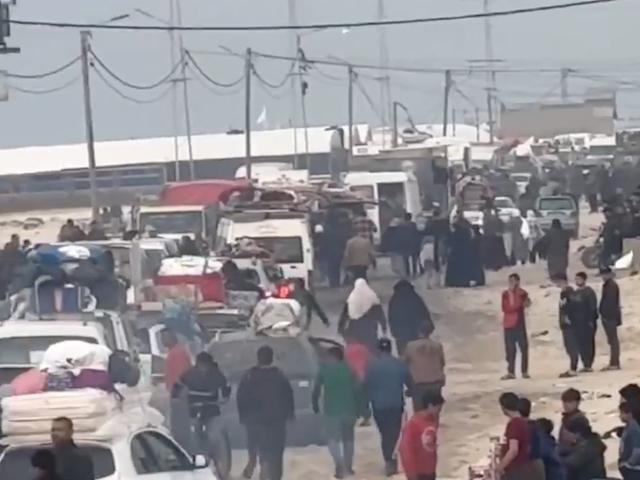Israel faces international scrutiny and concern over its proposed ground invasion of Rafah, a city in Gaza's south, where tensions have escalated sharply following Israeli airstrikes. These strikes have tragically resulted in the loss of at least 44 Palestinian lives, including over a dozen children, intensifying the humanitarian crisis in the region.
Rafah, currently a refuge for more than half of Gaza's 2.3 million population, is regarded by Israel as a stronghold of Hamas's remaining forces. The city's strategic importance is underscored by its location and the density of its civilian population, which complicates the military calculus for Israel.
Biden warns Israel not to go into Rafah.
— Ben Shapiro (@benshapiro) February 12, 2024
The IDF promptly goes into Rafah and saves two hostages.
The problem isn't just that Biden is senile. It's that he's always been a fool.
The international community, including notable figures such as Lord David Cameron and foreign ministers from Egypt, Qatar, and Saudi Arabia, has expressed deep concern over the potential for a ground offensive. The consensus is clear: such a move could have catastrophic consequences, not only worsening the humanitarian situation but also threatening the stability of the region. Egypt, in particular, has highlighted that a mass displacement of Palestinians could jeopardize the peace treaty that has maintained a fragile calm between the two nations for four decades.
Israeli Prime Minister Benjamin Netanyahu's announcement of preparation for a possible ground invasion and civilian evacuation to yet-to-be-established tent camps has sparked widespread alarm. The Israeli government, represented by spokesperson Eylon Levy, emphasizes its desire to avoid civilian casualties and fulfill its obligations under international law. However, the logistical challenge of safely evacuating over a million civilians from Rafah remains daunting, with plans for temporary shelters in open areas yet to materialize fully.
“The chief prosecutor of the International Criminal Court (ICC) warned Israel it could face war crimes charges if it pushes ahead with an invasion of Rafah.”
— Richard Goldberg (@rich_goldberg) February 13, 2024
Remember when President Biden rescinded the ICC sanctions executive order? Time to bring it back. https://t.co/Lg919n3DGB
The humanitarian crisis in Gaza, exacerbated by continuous airstrikes and a dire shortage of essential supplies, underscores the urgent need for a ceasefire and a diplomatic solution. With the majority of Gaza's population displaced and the health ministry reporting thousands of casualties, the imperative for immediate international intervention to facilitate aid delivery and negotiate peace is paramount.
Israel's military strategy, while aimed at neutralizing Hamas's threat, faces criticism for its heavy toll on civilian lives, with U.S. President Joe Biden among those deeming Israel's response as disproportionate. As the situation unfolds, the international community's call for restraint, aid, and a sustainable resolution becomes increasingly critical, highlighting the complex interplay of military objectives, humanitarian concerns, and diplomatic efforts in resolving one of the most intractable conflicts of our time.


